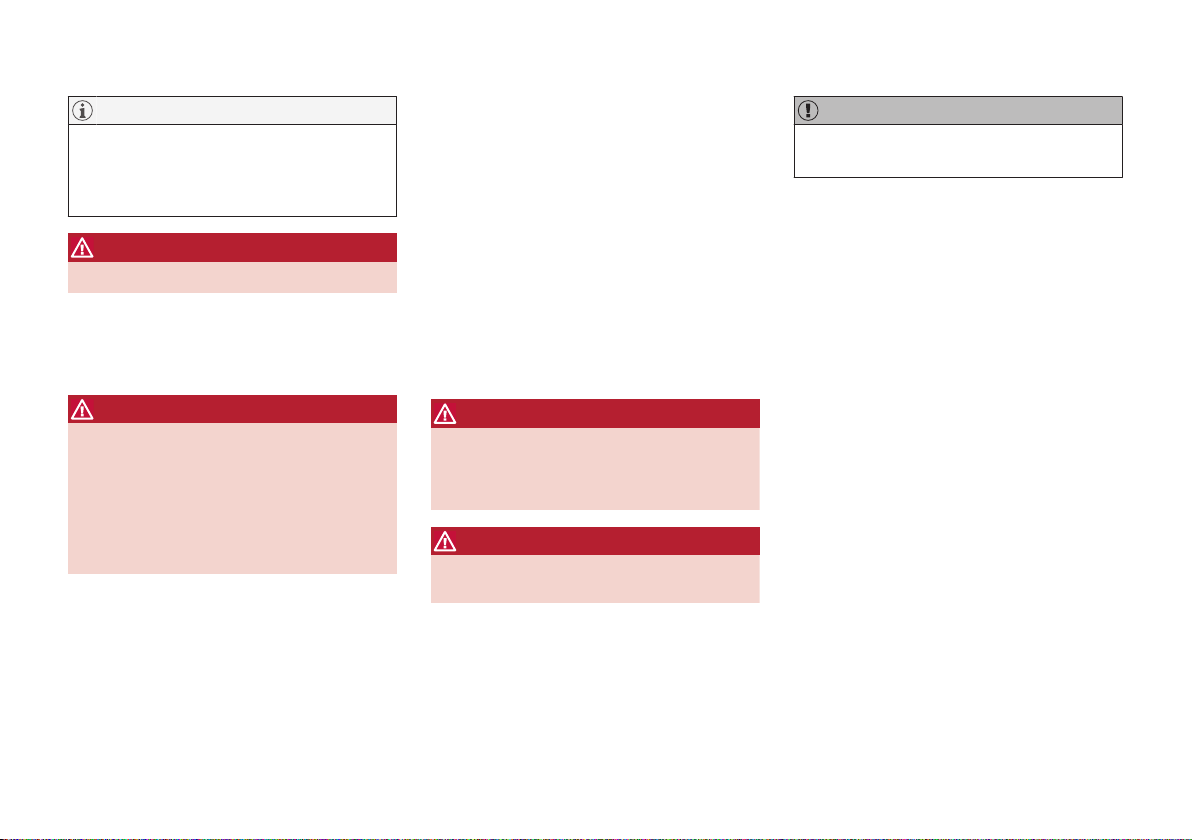WHEELS AND TYRES
* Option/accessory. 335
NOTE
The sealing fluid bottle and the hose must be
replaced after use. Volvo recommends that
this replacement is performed by an author-
ised Volvo workshop.
WARNING
Check the tyre pressure regularly.
Volvo recommends that the car is driven to the
nearest authorised Volvo workshop for the
replacement/repair of the damaged tyre. Advise
the workshop that the tyre contains sealing fluid.
WARNING
You should not drive faster than 80 km/h
(50 mph) after the emergency tyre repair kit
has been used. Volvo recommends a visit to
an authorised Volvo workshop for inspection
of the sealed tyre (maximum driving distance
is 200 km). The staff there can determine
whether or not the tyre can be repaired or if it
needs to be replaced.
Related information
•Emergency puncture repair* - operation
(p. 332)
Inflating tyres with compressor from
the emergency puncture repair kit*
The car's original tyres can be inflated using the
compressor in the emergency puncture repair kit
(p. 331).
1. The compressor must be switched off. Make
sure that the switch is in position 0 (Off), and
take out the electrical cable and the air hose.
2. Unscrew the tyre's dust cap and screw in the
air hose's valve connection to the bottom of
the thread on the tyre's air valve.
3. Plug the electrical cable into the closest
12 V socket and start the car.
WARNING
Inhaling car exhaust fumes could result in
danger to life. Never leave the engine running
in sealed areas or areas that lack sufficient
ventilation.
WARNING
Do not leave children in the car without
supervision when the engine is running.
4. Start the compressor by flicking the switch to
position I (On).
IMPORTANT
The compressor must not be operated for
longer than 10 minutes - risk of overheating.
5. Inflate the tyre to the pressure specified on
the tyre pressure label on the driver side
door pillar. Release air using the pressure
reducing valve if the tyre pressure is too high.
6. Switch off the compressor. Detach the air
hose and the electrical cable.
7. Refit the dust cap on the tyre.
Related information
•Emergency puncture repair* (p. 330)
•Emergency puncture repair kit* - overview
(p. 331)

